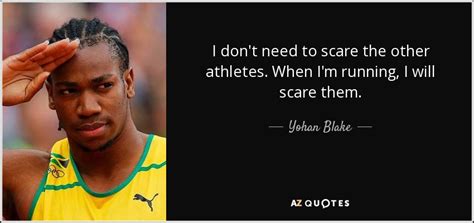A Quote by Norman Cousins
What was significant about the laughter . . . was not just the fact that it provides internal exercise for a person . . . form of jogging for the innards, but that it creates a mood in which the other positive emotions can be put to work, too.
Related Quotes
On the quality of life: #1. Realize that each human being has a built-in capacity for recuperation and repair. #2. Recognize that the quality of life is all-important. #3. Assume responsibility for the quality of your own life. #4. Nurture the regenerative and restorative forces within you. #5. Utilize laughter to create a mood in which the other positive emotions can be put to work for yourself and those around you. #6. Develop confidence and ability to feel love, hope and faith, and acquire a strong will to live.
My all-time favorite topic in positive psychology is the study of positive emotions. I'm fascinated by how pleasant experiences, which can be so subtle and fleeting, can add up over time to change who we become. I'm especially excited these days about investigating how positive emotions change the very ways that our cells form and function to keep us healthy.
Remember laughing? Laughter enhances the blood flow to the body’s extremities and improves cardiovascular function. Laughter releases endorphins and other natural mood elevating and pain-killing chemicals, improves the transfer of oxygen and nutrients to internal organs. Laughter boosts the immune system and helps the body fight off disease, cancer cells as well as viral, bacterial and other infections. Being happy is the best cure of all diseases!
Positive emotion can be about the past, the present, or the future. The positive emotions about the future include optimism, hope, faith, and trust. Those about the present include joy, ecstasy, calm, zest, ebullience, pleasure, and (most importantly) flow; these emotions are what most people usually mean when they casually-but much too narrowly-talk about "happiness." The positive emotions about the past include satisfaction, contentment, fulfillment, pride, and serenity.
What quality is shared by all objects that provoke our aesthetic emotions? Only one answer seems possible— significant form. In each, lines and colors combined in a particular way; certain forms and relations of forms, stir our aesthetic emotions. These relations and combinations of lines and colors, these aesthetically moving forms, I call ‘Significant Form’; and ‘Significant Form’ is the one quality common to all works of visual art.
Mood reflects the biology of the brain. How you feel is affected by the chemicals in the brain, and these are the same chemicals that form the basis of mood-altering drugs. You may use yoga, meditation, cognitive behaviour therapy (CBT) or exercise to alter your mood, or revert to healthy eating, regular exercise and getting enough sleep.
Positive and negative emotions cannot occupy the mind at the same time. One or the other must dominate. It is your responsibility to make sure that positive emotions constitute the dominating influence of your mind. Here the law of HABIT will come to your aid. Form the habit of applying and using the positive emotions! Eventually, they will dominate your mind so completely, that the negatives cannot enter it.
Most of actor's work is done at home, in your hotel room, in the wee hours of the morning thinking and reading and feeling, walking around and listening to music. It really just because an internal exercise, whatever skills. It's great if you have to learn something new for a gig and designing a character physically is always fun but it does become an internal exercise in separating the wheat from the chaff.
laughter, that distinctively human emotion, laughter which springs from trust in the other, from willingness to put oneself momentarily in the other's place, even at one's own expense, is the special emotional basis of democratic procedures, just as pride is the emotion of an aristocracy, shame of a crowd that rules, and fear of a police state.
If there's a feeling you have, other people have it. If there's something weird about your life, other people have lived it. If there's something kooky about your body, other people have that, too. We're not alone. There's some kind of tremendous relief in that and I think it can only be expressed in belly laughter. This tremendous relief that happens the millisecond we realize, it's not just me. That's what good laughter is about. It's about knowing that you're not alone.
A buddha laughs too, but his laughter has the quality of a smile. His laughter has the feminine quality of grace. When an ignorant person laughs, his laughter is very aggressive, egoistic. The ignorant person always laughs at others. The contented person, the person who knows life a little, laughs at himself - at the whole play of life itself. It is not addressed to anybody in particular. He just laughs at the absurdity of it all... the impossibility of it all.
































